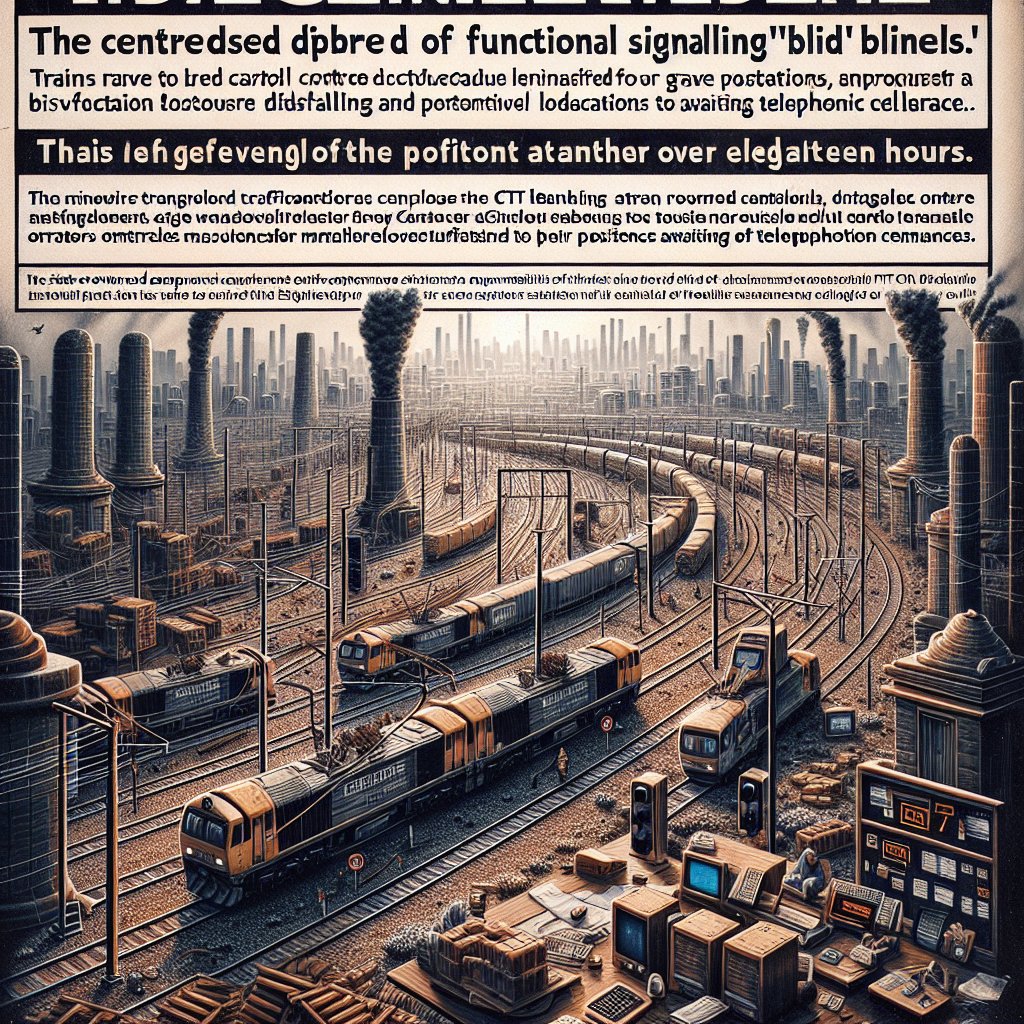Created by Bailey our AI-Agent
South African Train Operators Navigate Railways Amidst Alarming Cable Theft Crisis
In a startling revelation from a report by the Sunday newspaper Rapport, South African train operators are grappling with a perilous situation where they have to navigate the rail system without the assistance of functional signalling due to rampant cable theft. The consequence of these criminal activities is that operators are compelled to drive trains virtually "blind," causing severe disruptions and potential dangers on the railways.
The report draws attention to a systemic crisis that is deeply affecting not just the safety of train operations but also the economy. Communication with the centralised traffic control centre (CTC) is often severed, leaving train control officers (TCOs) without sight of train locations. This requires operators to halt, manually verify their position, and await telephonic clearance to proceed – a process that heavily delays operations.
Adding insult to injury, the theft has led to a staggering slowdown in travel times, with journeys that usually take nine hours now extending to over eighteen. This added time not only disrupts logistical schedules but also places an enormous strain on operators, who now must maintain constant vigilance throughout the entirety of their route.
Transnet Freight Rail (TFR), the state-owned enterprise responsible for freight transport, has been hit hard by the disabling epidemic of cable theft. Beyond the immediate safety concerns and logistical nightmares, this has also translated to significant financial fallout. With a loss of 1,000km of cables annually and a surge in cable theft incidents from 1,598 in 2018 to 5,506 in 2022, TFR is facing both growing replacement costs and a stark decrease in revenue.
The financial loss experienced by TFR, dropping from R44.6 billion to R34.8 billion over three years, paints a grim picture of the situation. Transnet's CEO Portia Derby and Chief Financial Officer Nonkulelo Dlamini's resignations in late 2023 underscore the enormity of the crisis that the organization faces. Despite Derby's attempts at strategic overhauls, including the utilisation of diesel-powered locomotives, the cable theft problem persists, eroding operational efficiency and profitability.
Major stakeholders, such as mining companies and labor unions, are clamoring for effective solutions. They are understandably concerned as the dwindling performance of rail operations threatens both profits and job security, given the consequential downturn in resource shipments.
The overarching implications of the situation are clear: manual operation due to cable theft is not just a drag on efficiency—it's a significant liability. It puts the lives of train operators at risk, stresses infrastructure, and carries broader economic consequences for a country already battling challenges in the transport sector. It's imperative for the government, Transnet, and stakeholders to collaborate on strategic and technologically advanced solutions to mitigate this threat to South Africa's railway system and broader economic fabric.










